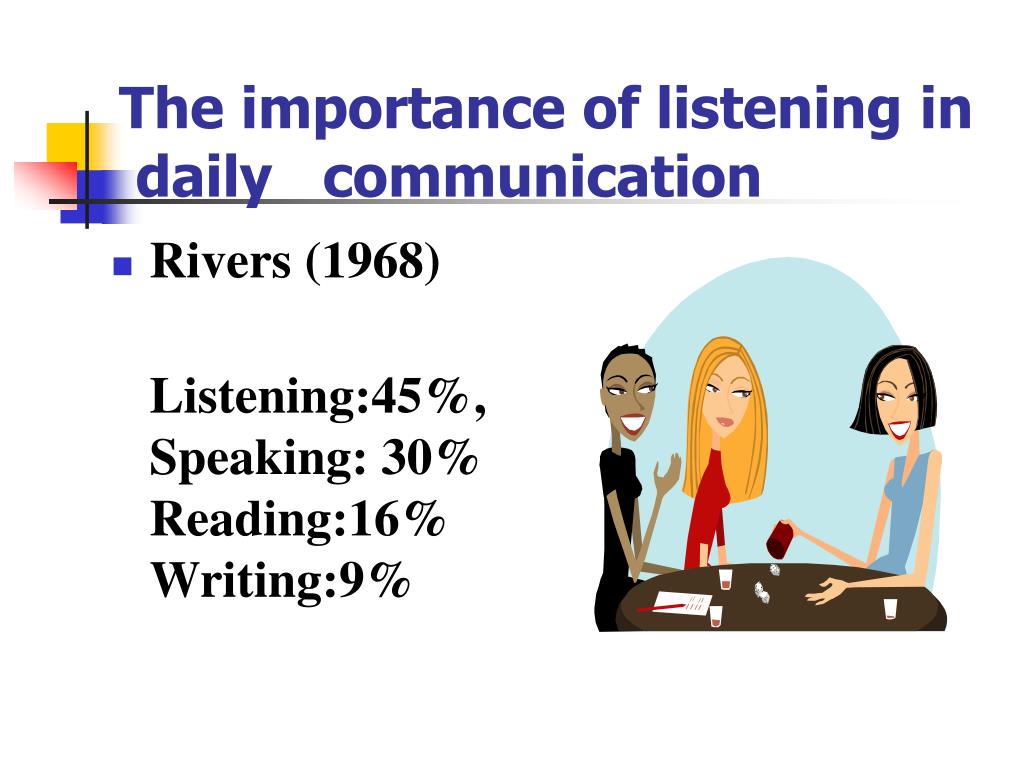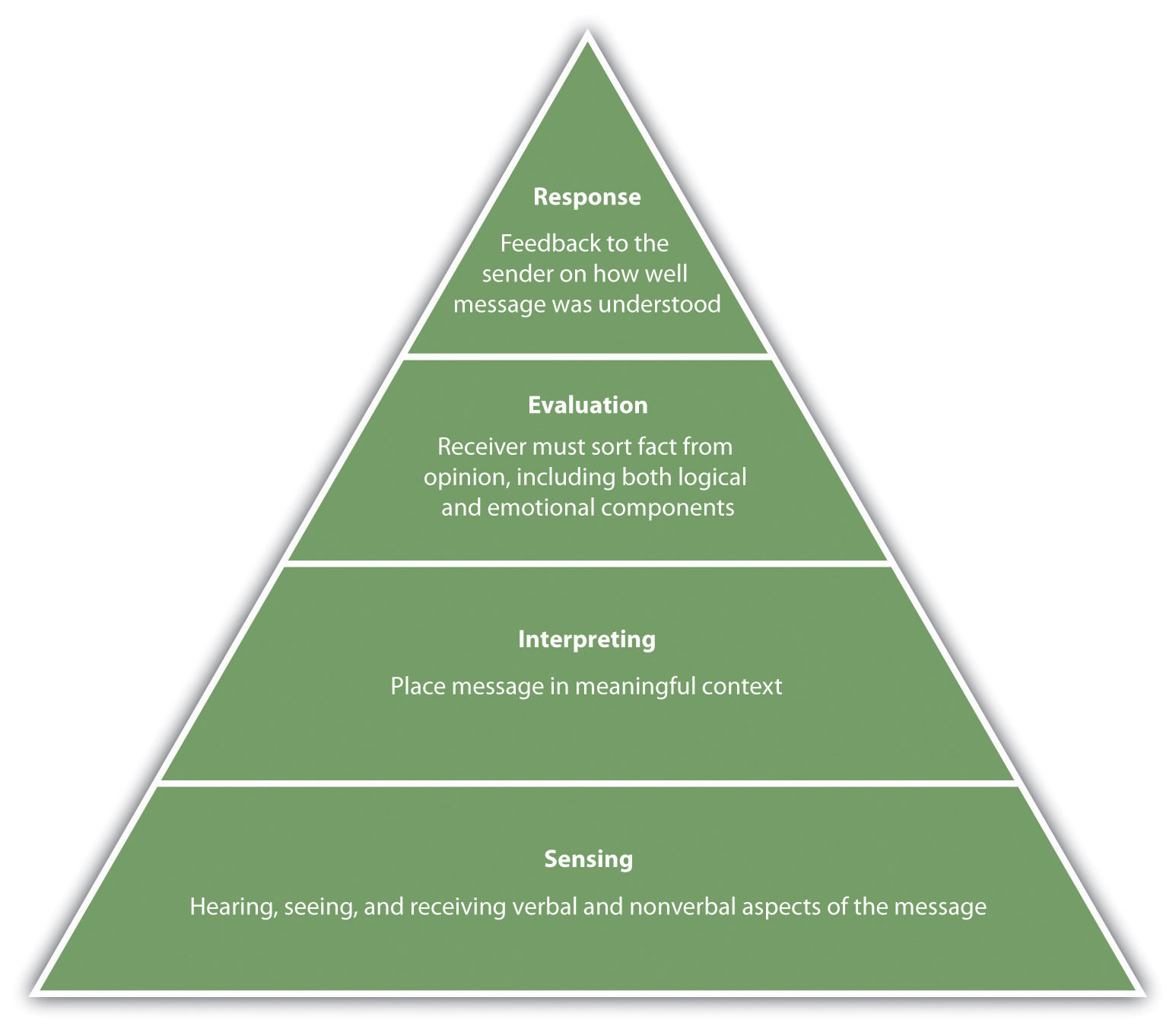

These skills are learned, and they can be improved. Listening is an activity that involves the skills of paying attention, making sense of what is being said (interpretation), and providing feedback or response to the speaker. Person listens to what interests him or her and does not listen to what is found to be boring or dull or irrelevant. The psychological aspects have to do with interest and attention. Just as listening has a physiological basis, it also has a psychological basis. There are natural peaks and valleys in the listener's processing of auditory stimuli, and listeners can only comprehend some of the stimuli that they are able to hear. The brain decodes these vibration patterns that are known as "words." Physiologically, listening occurs in waves. It is the brain that gives meaning to those vibrations. Physiologically, listening involves the use of hearing organs to receive those acoustic vibrations that are converted into signals that can be understood by the brain. While words such as "listening" and "hearing" are often used interchangeably in everyday speech, listening is a process that includes selective attention and the assignment of meaning. Thus, hearing is a prerequisite for listening.

If one has hearing that is not impaired, he or she hears every audible sound that occurs in his or her presence. In the selective process of listening, stimuli are filtered. Listening is selective perception and attention to auditory stimuli. One type of perception is listening, the process by which one selectively attends to certain auditory stimuli. When perceiving something, a person is able to note certain stimuli and draw some kind of information from them. "Perception" has been defined as a process of extracting information from the world outside oneself, as well as from within.

To define "listening" entails comparing and contrasting it with some other similar activities: "perception," "attention," and "hearing." While the word "listening" is used interchangeably with some other words, such as "hearing," it is a unique process, unlike any other. Listening is a complex facet of the communication process, and it is considered by some communication researchers to be a more difficult activity than speaking. Adults spend about 42 percent of their time in listening activities, and children spend about 58 percent of the time in the same activity (Lederman, 1977). Listening is a fundamental part of the process of communication. INTERPERSONAL COMMUNICATION, LISTENING AND


 0 kommentar(er)
0 kommentar(er)
